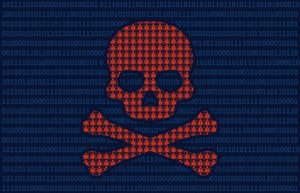We live in a world where our dependence on online services and the Internet continues to grow. Whether you are checking emails on your phone, visiting a website on your computer or reading news stories on your tablet, the Internet is everywhere. As a consequence, in the very near future the subject of personal injury claims being pursued because of malware and hackers could be a hot topic.
 When you consider that negligence is central to any personal injury claim there are many parties who may be concerned about the growing threat of malware, frauds and rogue emails. But how might this impact you?
When you consider that negligence is central to any personal injury claim there are many parties who may be concerned about the growing threat of malware, frauds and rogue emails. But how might this impact you?
What Is Malware?
In simple terms malware is a piece of software installed on a computer/mobile device with the sole intention of causing some kind of damage. Historically this damage tended to be the deletion of program files and confidential information but in recent times the fraudsters have become more attuned to the value of private information. As a consequence, many online devices are now being used as innocent pawns in extremely lucrative scams and fraudulent activity.
Who Would Install Malware?
As we touched on above, malware is software installed to cause some kind of damage to a computer or network. As a consequence, it will come as no surprise to learn that malware is often covertly installed by hackers and sophisticated fraudsters. It may be something as simple as opening an attachment in your email, clicking on a link or downloading a software package.
Even though there are firewalls available today which should recognise the vast majority of malware, this is a fast changing industry. As quickly as firewalls are able to identify specific malware threats, new ones emerge. So, those who think that malware is simply an inconvenience and nothing else could be in for a surprise in the future!
What Are Zombie Computers?
Over the last couple of years there has been a significant increase in what are known as DDoS attacks across the globe. These are highly sophisticated actions which can bring down the most secure websites by simply bombarding the website server with information and requests until it collapses. There are huge computer networks out there which have the capacity to carry out these sophisticated attacks. However, as a means of adding a further layer of protection to the hackers we have seen many so-called “zombie computers” used to assist in this activity.
There is malware out there which when installed will give the hackers direct access to your computer and more importantly your computer resources. As and when they give the signal, your so-called “zombie computer” would become one of hundreds of thousands in a network which could span around the world. Once these computers are integrated the cumulative power can be enormous and something which the fraudsters are using with DDoS attacks on a more regular basis. After all, if there are 100,000 “zombie computers” involved in an attack, how can the authorities possibly identify the source of the attack?
Could You Be Liable For Cyber-Attacks?
There is a growing consensus that in years to come those accessing the Internet will have an increased level of responsibility regarding their own Internet connections and computer resources. If you have not installed the latest firewall, your security is lax or your passwords are public knowledge, is this not a modern day example of negligence? It could be argued that those who do not keep their security up-to-date leave themselves wide open to malware and other similar attacks.
What Has Malware Got To Do With Personal Injury Claims?
At first glance you might be forgiven for wondering how an online hack or activity by fraudsters could in any way be classed as a personal injury. This is where many people have the misconception that personal injury claims relate only to physical injuries. This is not the case. Imagine the situation, your computer is hacked due to a lack of security and involved in fraudulent activity. If this fraudulent activity led to money being stolen from individuals, imagine their mental anguish – can you start to see the picture?
Physical Injuries
One interesting development over recent times is the use of online software to control devices such as self-driving vehicles. In this instance, if your computer was used to hack into driving software which resulted in a car crash and physical injuries, could you potentially be liable? If the technicians were able to trace an element of the attack to your computer/mobile device could they pursue you for some form of compensation?
The use of online software with self-driving vehicles is just one example but it does show the extent to which we now depend on the Internet and online services.
Mental Injuries
The common misconception that all personal injury claims relate to physical injuries is quite simply wrong. Compensation for mental suffering is as much in the minds of the courts as compensation for physical injuries. Mental strain brought on by for example an online fraud can bring on stress, anxiety and have an impact on everyday life and a working career.
Let us take a step back and look at this from a distance. It is not difficult to see how the natural progression from involvement, whether deliberate or not, in a fraud could drag you into a compensation claim.
Who Is Liable?
There are many elements to online fraud and many potential parties who could be dragged into legal action. These include:-
- Hackers
Only a few years ago it would have been easy to suggest that all hackers were simply bored youngsters with exceptional knowledge of software or activists. These elements of the hacking community are still at large but this has now become an extremely lucrative industry. In effect hackers can impact your everyday activities, take over your computer and potentially control that ingenious self-driving car of the future. However, finding proof about the perpetrators and bringing them to court is a whole different matter.
- Businesses/computer owners
It can be relatively simple to trace businesses/computer owners who are innocently dragged into online fraudulent activity via their IP addresses. One example, in recent times we have seen an increase in the illegal downloading of copyrighted content. There have been numerous occasions where innocent parties have seen their computers taken control of with their IP address and Internet connection used to download copyrighted content. Is it really a big jump to suggest that businesses and individuals could be partially liable even if their computer has been injected with malware without their knowledge or consent?
Are there similarities with for example nightclub operators failing to install security on their premises? In the event of a fight and subsequent injuries many have been found negligent regarding their legal duty of care to customers and staff.
- Software companies
There is also a suggestion that software companies, such as firewall operators, will themselves have a growing legal duty to protect their customers from attack. This is akin to buying a vehicle only to find it has a fault which has caused an accident and injuries. In this instance, surely it would be natural to suggest that the fault with the vehicle was to blame for the accident and subsequent injuries? Whether or not software companies could avoid such action if their customers fail to “abide by their instructions and guidance” is a different matter.
- Insurance cover
We have seen cases in America where companies have had their IT systems hacked and had data breached leading to them being sued for financial losses. Where there has been no direct negligence from the defendant, although their computer systems were used for fraudulent activity, would they be covered by their business insurance? We will likely see a number of legal challenges in the years ahead to help clarify this point.
Summary
Our growing dependence on the Internet and online services is both extremely useful but potential extremely dangerous. While many of us are proactive regarding our working computers and security, it is often very different with equipment in the home. In the future, if your computer is dragged into some form of illegal online activity, you may well live to regret that laid back approach to home computer security. If you failed to keep your security software up to date does this leave you open to prosecution?
It is fair to say that online security and personal injury claims will likely be headline news in years to come. Many hackers and fraudsters are almost impossible to trace due to their knowledge of the Internet, IP addresses and coding. As a consequence, victims may well look at what some would describe as “innocent parties” – who failed to secure their Internet connection and played an indirect role in illegal activity.
Keeping your security up to date and routinely scanning your files for rogue software and coding may seem like an inconvenience but as the old saying goes, it’s better to be safe than sorry.



